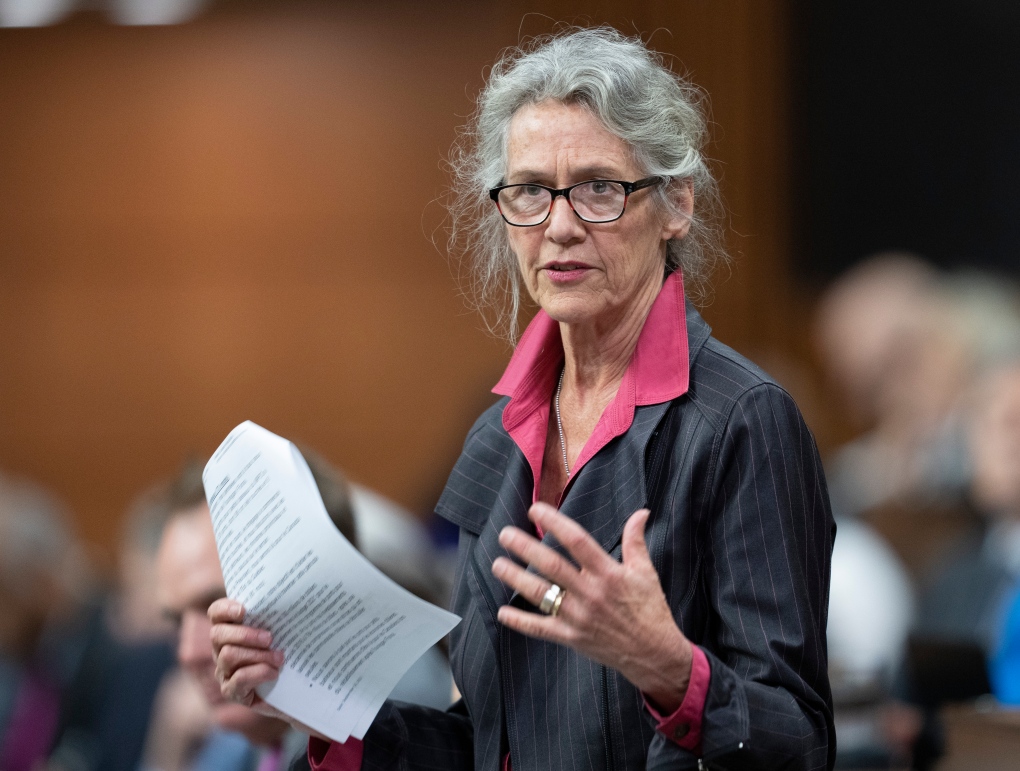Federal politicians are expected to make a significant announcement on ocean protection during an international conference in Vancouver on how to take action on promises to protect the marine world made at recent global environment meetings.
Fisheries and Oceans Minister Joyce Murray and Environment Minister Steven Guilbeault are both to attend the IMPAC5 conference, joining thousands of delegates from 123 countries. Conference sessions begin Saturday and will last through the week.
"It is the first major international congress following COP15 in Montreal, where we will plot a course to protecting 30 per cent of the ocean by 2030," said Ben Stanford, spokesman for the conference organizers.
In December, delegates from around the world met in Montreal to hammer out an agreement to protect global biodiversity. Included in that deal was a pledge to put 30 per cent of the world under some form of environmental protection by 2030, including the oceans.
"While COP15 was the 'what', IMPAC5 is the 'how,"' said Stanford.
Big announcements aren't likely to come until the final days of the conference, Feb. 8-9. That's when government, First Nations and industry leaders come together to review the discussions.
"We're hopeful there's going to be a really positive announcement on the (Marine Protected Area) network in B.C.," said Alexandra Barron of the Canadian Parks and Wilderness Society, one of the conference's co-hosts.
Government sources confirm an announcement is likely.
But mostly, the IMPAC5 conference is designed to bring experts together to discuss how to achieve goals already agreed to, Barron said.
One of the main issues to be discussed is how to improve already existing marine protected areas that don't, in fact, offer much protection.
"It's effectively where you have a line on a map without any enforcement or management or even regulation," Barron said.
Canada, to some extent, has established what the conference agenda calls "paper parks," she said.
A section of the Scott Islands Marine Protected Area off the northern tip of Vancouver Island still allows bottom trawling, which damages reefs and other habitats along the sea bottom. The Gully, a protected area off Nova Scotia's east coast, has oil and gas leases within it.
Ensuring that protected status actually means something on the water will be a major focus of the conference, Barron said.
"Generally, we have very weak regulations or a real lack of enforcement on the water," she said.
"There are problems in Canada and there are problems in other countries as well. It's a challenge globally."
Other goals Barron hopes to achieve include a call for a moratorium on deepsea mining. She said delegates are also likely to call on governments to finally complete the High Seas Biodiversity Treaty, an ongoing global negotiation that aims to set some basic rules for the sustainable use of ocean resources from fisheries to minerals.
"There are lots of things being looked at," Barron said.
"IMPAC5 comes at an opportune moment. We have an opportunity now to take those global biodiversity framework commitments that were agreed to in Montreal and dig down into how we do that."
This report by The Canadian Press was first published Feb. 3, 2023.









































